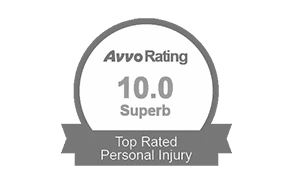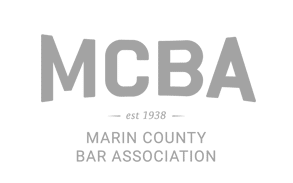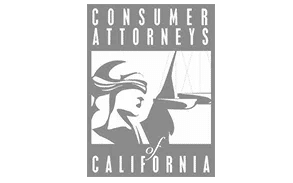Will My Premium Go Up if I Am Not at Fault for an Accident?

One fear many motorists have after an accident is that their car insurance premiums will rise.
Even when drivers are not at fault for the crash, they often fail to report the accident to their insurer because they want to avoid the dreaded jump in premium costs.
But do you have to fear your insurance going up if you’re not at fault? Short answer: Actually, you don’t—provided you were not primarily responsible for the accident.
Under California law, an insurer cannot increase your premiums when you aren’t at fault.
How Much Do Premiums Rise after an Accident?
Insurance rates in California are really a function of three factors:
- Your driving history (i.e., how many accidents you’ve gotten into)
- Your driving experience (how many years on the road)
- Number of miles driven each year
After a crash, your driving history will be shot, so you can expect a substantial increase in premiums. How much? Quite a bit, actually.
A 2016 report from InsuranceQuotes website found that California insurers jacked up premiums more than insurance companies in other states. After one claim for $2,000 worth of damage, the average California driver saw a staggering 78.3% increase in his or her premiums.
So if a driver was paying $100 a month for insurance, that suddenly spiked to over $178 for making just one claim. This was by far the largest increase in the country.
Massachusetts, which came in at #2, saw a 66.7% increase. Most states saw around a 40% increase, so California was almost double the national average.
And if the driver filed a second claim? Then insurance premiums increased even more. Nationally, they almost doubled, with a 98% increase.
Fortunately, insurance rates didn’t remain elevated forever. Instead, they impacted insurance rates for 3-5 years, after which a driver’s premiums would slowly drift back down.
What is California’s Law on Premium Increases after an Accident?
If you weren’t at fault for the accident, then we have some good news. California law will prohibit an insurer from increasing your insurance rate if you were not at fault for a crash.
Many different laws are in play, but this summary from the California Department of Insurance is helpful.
Essentially, when setting rates, the insurance company will look at your driving history. However, that driving history will only cover those accidents where you were “principally at fault.”
This means that if you are not responsible for the collision, then the insurance claim you submitted cannot be used by the insurer when setting your rates.
Were You Really Not at Fault?
California operates under a comparative negligence system. This law recognizes that sometimes both drivers involved in an accident are to blame for the crash. Consider the following example:
Samantha is approaching an intersection to make a left-hand turn. However, she doesn’t use her turn signal but instead hits the brakes to slow down as she approaches the lights. Behind her, Jason has been tailgating Samantha and driving aggressively. When Samantha slows down in preparation for making a turn, Jason slams into the rear end of her vehicle.
Here, Jason is clearly to blame for the accident—he was riding too closely to Samantha and hit her. But Samantha also bears some of the blame for the crash—she didn’t use her turn signal, which would have alerted those around her that she was preparing to make a turn at the intersection.
Based on these facts, we can’t say Samantha is completely blameless. She is at least partially at fault for the crash.
Who Determines Fault?
If you went to trial, then a jury would allocate fault between the parties. The jury might find one driver 40% responsible and the other 60%, or they might reach a different percentage. It is up to the jury based on the evidence they hear.
However, in a settlement situation, the parties themselves will agree to fault. Expect insurance adjusters to carefully review the facts of the case including the police report, your statements about what happened, and any witness statements.
Insurance companies often disagree about fault unless the facts are clear cut. Allocating fault often is part of negotiating a settlement.
Injured? Don’t Delay.
Be Careful of Admitting Fault in a Settlement Agreement
Many if not most car accident cases never go to trial. Instead, the parties settle their dispute amicably and both sign a settlement agreement. In exchange for compensation, you agree not to sue the at-fault driver in the future.
Settlement agreements usually work for all parties, but there is a catch you need to be aware of—if you admit to being “principally at fault” for the accident, you can expect your premiums to rise.
“Principally at fault” means that you are at least 51% responsible for the crash. If so, then California law allows an insurer to increase your premiums because of the accident.
For this reason, you should read any settlement agreement very closely. Your car accident attorney can also helpfully review a settlement agreement or even write it so that your rights are protected.
This is another reason why you should not admit fault at the scene of the accident, either. The other driver is sure to tell his or her insurer that you are claiming responsibility, and the insurance company might insist that you are principally at fault based on that reason alone.
Injured in an Auto Accident? Speak with The Wakeford Law Firm
Car accidents leave our clients with many bills—for car repairs and for medical treatment, including rehabilitation. These bills can total tens of thousands of dollars, or even more. Add in lost wages if you can’t work and car accidents can be very expensive.
It is critical that you submit a claim to cover these losses when another driver is at fault for a collision. At our firm, we have extensive experience helping people just like you get the compensation you need to recover after a crash.
If you were in a car accident that wasn’t your fault but concerned your insurance will go up, speak with our attorneys.
Contact us today. We offer a free consultation to those who call 415-569-7495 or send us an online message. Please avoid delay. California law gives you a short window of opportunity to make a claim for compensation, and any delay could cost you money.
How useful was this post?
Click on a star to rate it!
Average rating 4.3 / 5. Vote count: 6
No votes so far! Be the first to rate this post.







